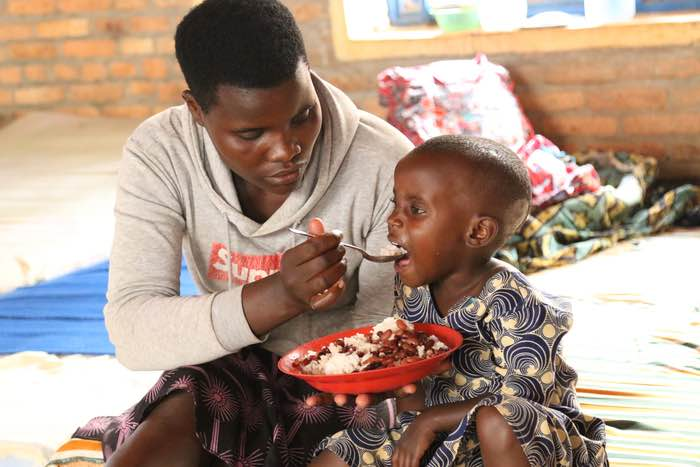
Asylum seekers at Mahama- Photo: WFP –John Paul Sesonga
This December, the United Nations World Food Programme (WFP) has welcomed two much needed financial contributions of EUR 2 million each from Austria’s Development Agency (ADA) and the German Federal Foreign Office (GFFO), to provide food and nutrition assistance to refugees and asylum seekers hosted in camps and transit centres across Rwanda.
“We are highly grateful for two generous and timely contributions from the people and the governments of Austria and Germany,” said Mr Andrea BAGNOLI, WFP Representative and Country Director. “These contributions averted a stop of critical assistance to refugees and asylum seekers which was looming at the end of 2023 due to an acute lack of funding. They allow WFP to continue providing life-saving food assistance to the most vulnerable.”
With these funds that are part of regional contributions, WFP will provide food and nutrition assistance to 118,000 Congolese and Burundian refugees as well as 14,000 asylum seekers dependent on humanitarian support. WFP uses cash transfers to empower targeted camp-based refugees to address their essential needs by purchasing goods of their choice from local markets, while also contributing to boosting the local economy.
WFP is currently providing food assistance to refugees using a prioritisation scheme according to their levels of vulnerability. Pregnant and breastfeeding women and girls, children under two years and people with HIV/AIDS or Tuberculosis receive highly nutritious food to prevent and treat malnutrition.
Since November 2023, refugees categorised as highly vulnerable receive RWF 8,500 (USD 6.87) due to funding shortfalls, while moderately vulnerable refugees receive RWF 4,250 (USD 3.43), equivalent to 63 percent of their respective entitlements. However, despite the contributions from Austria and Germany, WFP still needs US$16 million additional funding for the next six months (December 2023 – May 2024) to restore full rations to eligible refugees, as well as support new asylum seekers and Rwandans returning home from neighbouring countries.
The United Nations World Food Programme is the world’s largest humanitarian organization, saving lives in emergencies and using food assistance to build a pathway to peace, stability and prosperity for people recovering from conflict, disasters and the impact of climate change. (End)
